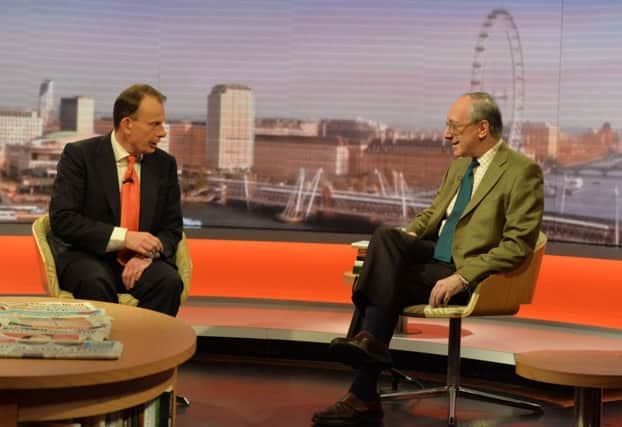Torture probe ‘must be judge-led’


Responsibility for probing claims surrounding the treatment of detainees was handed to Parliament’s intelligence and security committee (ISC) after police investigations forced the halt last year of a judge-led process.
ISC chairman Sir Malcolm Rifkind insisted it would look into the matter “without fear or favour”, take advantage of new freedoms to demand evidence and call witnesses, probably including ex-prime minister Tony Blair.
Advertisement
Hide AdAdvertisement
Hide AdHe also called on the White House to disclose to the committee what the UK Government and its intelligence agencies had covered up in last week’s damning report by the US Senate Intelligence Committee into the CIA’s use of torture.
Downing Street insists all redactions were made for reasons of national security but the former foreign secretary said it was important to establish that there had not been a move simply to hide embarrassing revelations.
Senior Tory colleagues however were among those casting fresh doubt on the committee’s ability to command confidence that it would fully expose the UK’s role in extraordinary rendition and other activities.
Ex-shadow home secretary David Davis told Sky News: “One must understand the sheer weight of pressure that comes from the Establishment to try and stop this sort of stuff coming out so I think this needs to be a judicial inquiry.
Advertisement
Hide AdAdvertisement
Hide Ad“I used to work for Malcolm Rifkind, I am a big fan of his, but ... I think it has to be completely independently established.”
Former cabinet minister Andrew Mitchell told the BBC it should be placed in the hands of a “judge who has had and has no connection whatsoever with the British security services”.
The first detainee inquiry, led by Sir Peter Gibson, found that Britain “may have become inappropriately” involved in some cases of rendition and identified 27 areas that needed further investigation before it was axed.
Even before criminal investigations were launched into allegations involving Libyan victims its validity had already been called into question when campaigners and human rights lawyers pulled out, claiming it lacked credibility.
Advertisement
Hide AdAdvertisement
Hide AdShadow home secretary Yvette Cooper said she doubted the ISC “have the capacity and the scope” to carry out an inquiry and it remained her “instinct” that a judge-led process would still be required to ensure confidence.
Deputy Prime Minister Nick Clegg has already acknowledged a full judicial inquiry may still be required.
Sir Malcolm sought to play down concerns that the ISC lacked sufficient teeth to investigate the claims of complicity after two previous reports on detainees and rendition turned out to be inaccurate because the intelligence agencies had not supplied all the relevant evidence.
New powers now meant MI6, MI5 and GCHQ were obliged to hand over any files and documents, he said.
Advertisement
Hide AdAdvertisement
Hide AdHe said the committee would not hesitate to ask any former or serving ministers likely to have information about the issue to give evidence, adding: “If people deserve to be embarrassed it’s our job to embarrass them.
Labour former home secretary Alan Johnson this weekend joined those suggesting Mr Blair and Jack Straw should give evidence.